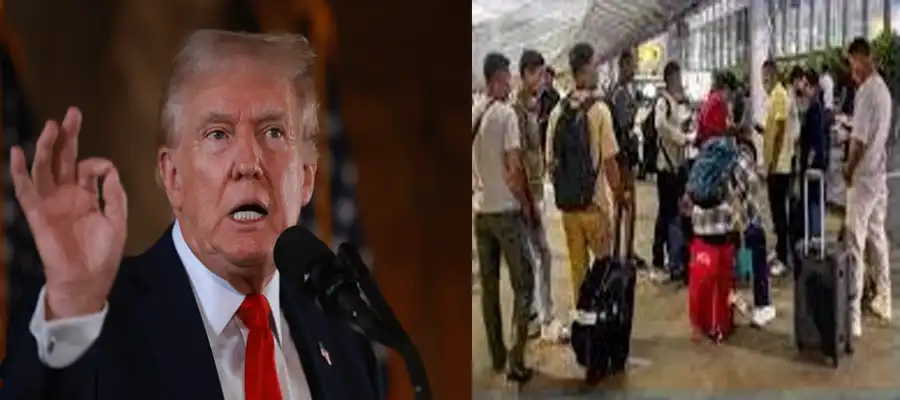As US President-elect Donald Trump gears up to take office on January 20, Indian H-1B visa holders are facing significant uncertainty about potential immigration reforms that could disrupt their lives and careers. Alongside them, thousands of Indian students in the US are also concerned about how changes might affect their education and career aspirations.
Impact on H-1B visa holders
The H-1B visa programs, widely used by technology and engineering professionals from India, have been in the spotlight due to the Trump administration’s focus on prioritizing American workers. Proposed changes could include:
- Increased restricted: stricter requirement for visa approvals and renewals, potentially making it more difficult for professionals to continue working in the US.
- Higher costs for employers: potential increases in fees for sponsoring H-1B workers could discourage companies from hiring foreign talent.
- Reduced visa numbers: a cap on the annual H-1B visa issues might further limit opportunities for skilled workers.
For India H-1B visa holders, this could mean job insecurity, limited opportunities for advancement, and greater challenges in securing permanent residency.
Ripple effects on Indian students
Indian students, who constitute a significant portion of the international student population in the US, may also face challenges due to the expected immigration policy shifts. Key concerns include:
- Fewer job opportunities: stricter H-1B visa res could reduce the availability of jobs post-graduation, especially in the technology and STEM fields where many Indian students aspire to work.
- Decreased OPT benefits: Optional Practical Training (OPT), which allows students to work temporarily in the US after completing their degrees, might face restrictions, making it harder to gain valuable work experience.
- Rising costs: if visa sponsorships become more expensive, employers may prefer hiring domestic candidates over international students, leading to increased competition.
Uncertainty around student visa: proposed changes to F-1 student visa could tighten rules around extensions or re-entry, adding another layer of concern for Indian students.
Border implications
The ripple effects of these policies could extend beyond individual professionals and students to impact the Indian diaspora. US-India relations, and the global tech industry.
- Brain drain reversal: India may see a rerun of skilled professionals and students unable to find opportunities in the US, potentially benefiting India’s growing tech ecosystem but also disrupting families and long-term plans.
- Talent shortages in the US: If H-1B restrictions deter skilled foreign workers, US companies might face shortages in sectors reliant on international talent.
- Decline in Indian Students: a perceived lack of opportunities post-graduation could discourage Indian students from pursuing education in the US, impacting American universities.
As President-elect Trump prepares to take office, Indian professionals and students are navigating this period of uncertainty with caution. Legal advisors are urging H-1B holders to avoid travel outside the US for now, while students are re-evaluating their long-term career strategies.
The next steps of the Trump administration will be closely watched, as they have the potential to redefine the American dream for thousands of Indian-pursuing professionals and academic opportunities in the US.
